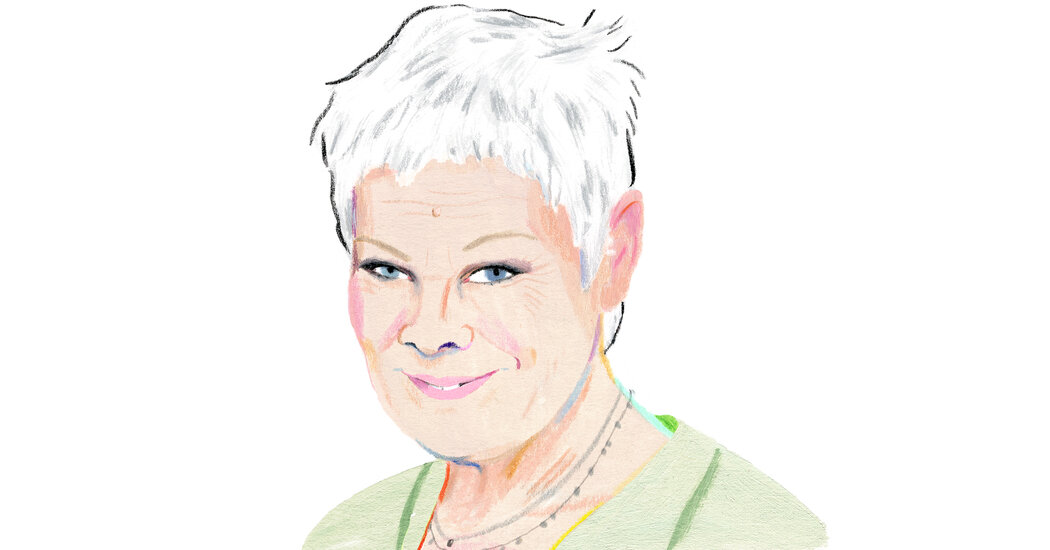What’s the best book you’ve ever received as a gift?
That’s an impossible question. The best in 89 years? How do I know? I remember being given A.P. Wavell’s “Other Men’s Flowers” as a birthday present when I was young. It’s a collection of poetry, which opened my eyes to the power of verse. But then I also adored “The Talented Mr. Ripley,” by Patricia Highsmith. My husband, Michael [Williams], bought it for me as a holiday read. I devoured it and didn’t want it to end. I had to ration myself to a couple of pages a day.
What’s the last great book you read?
“Dormouse Has a Cold,” by Julia Donaldson. It’s a lift-the-flap children’s book, sent to me when I was recovering from a cold.
Have you ever gotten in trouble for reading a book?
After lights out at boarding school when I was 15. I was in bed under the covers with a torch reading Rudyard Kipling’s “Just So Stories.”
How do you organize your books?
I don’t. I have so many books, but never enough shelves, so I have books everywhere — piled up on tables, chairs, running along window sills, books in every available nook and cranny. Because of my eyesight I can no longer read, but I love being surrounded by books — they’re snapshots of the past: first-night gifts, holidays abroad, memories of lost friends and loved ones. I still have my father’s individual copies of the Temple Shakespeare from 1903. They’re small, red-leather-bound copies with gilt lettering on the cover, and if I hold one I can be transported back to my childhood and family quizzes about Shakespeare.
Shakespeare’s writing, you say in the new book, “has the capacity to make us feel less alone.” What other writing has done that for you?
Oh so many — Iris Murdoch, Chekhov, Zoë Heller, J.D. Salinger — any writer who can reflect us back to ourselves and help us discover who we are.
You mention seeing a theater ghost in the book. Do you enjoy ghost stories?
I love a good ghost story. I remember being on a family camping holiday in Scotland when my daughter, Finty, was young. We snuggled up under a blanket, while Michael poured himself a large vodka and tonic and read us “The Mezzotint,” by M.R. James. It was thrilling.
Did you ever read backstage to pass the time?
No, there’s never time. And in any case I couldn’t, as I’d be worried about becoming too engrossed in the story and missing my cue.
What book, fiction or nonfiction, best captures life and work in the theater?
Again, there are so many, but I’ll opt for “National Service,” by Richard Eyre. It’s such an honest account of the ups and downs of running a big organization like the National Theater.
What made Brendan O’Hea a good interviewer for this book?
We’re old friends and have no secrets from each other. We also have the same sense of humor and a shared passion for Shakespeare. He’s tenacious in his questioning, which probably means that I’ve revealed more about my personal life and acting technique in this book than I have in any other.
Does the Shakespeare authorship debate interest you?
No. William Shakespeare from Stratford is good enough for me and I’ll settle for that.
Of all the characters you’ve played across different media, which role felt to you the most fulfilling?
I’d have to say Cleopatra: She’s mercurial, witty, imperious, passionate, irreverent — the whole of life is in that part — you get a real intellectual workout whilst playing her. In fact, I’d like to be getting ready now to go onstage to play her — look, I’m getting goose bumps at the thought.
If an aspiring actor were to read one portion of the book, which would you suggest, and why?
I’d hope there was something to be gleaned from every chapter, but there’s advice on the rehearsal process, coping with first-night nerves and tips on verse speaking. I’m just sharing a little of what I’ve learned over the past 70 years, which will hopefully act as a springboard for aspiring actors to formulate their own ideas. I’d also like to say that we’ve had wonderful feedback from people who aren’t actors — many of whom were put off Shakespeare at school — and, having read our book, felt inspired to revisit his plays.
You’re organizing a literary dinner party. Which three writers, dead or alive, do you invite?
I’m not a very good cook, so I may have to suggest that people eat before they arrive. I’d certainly invite Shakespeare. I’d ask him if he had another play up his doublet. I’d also like to meet Henrik Ibsen — who I recently discovered I’m related to — although he might scowl if I served him my own version of Norwegian meatballs. And I know Billy Connolly has written a few books, so I’d have to invite him to be assured of a good laugh.


